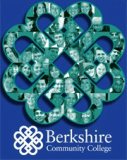From Inside Higher Ed, a new report out this month: Online Learning and Student Outcomes in California’s Community Colleges, by Hans Johnson and Marisol Cuellar Mejia.
The authors found, based on a study of what appears to be the complete Fall 2006 cohort from the CA community college system (that: “When we examine student outcomes, we ‑ find a surprising result: short-term outcomes are poor, but long-term outcomes are not.”
It appears that students, and especially at-risk students, do not complete or fail at 11-14% higher rates in individual online courses compared to traditional on-campus courses, according to the study. BUT, “when we examine long-term outcomes, the picture looks brighter. Students who take at least some online courses are more likely than those who take only traditional courses to earn an associate’s degree or to transfer to a four-year institution. For some students, online courses oer a useful tool that helps them to reach their goals.”
This sounds like the classic case of “the rich get richer.” That is, students who will be successful (=not at-risk) use online courses to complement their studies, and actually succeed at a somewhat higher rate than those who just take on-campus classes.
Note that this study uses 2006 data, which would mean that the online pedagogies in use are 8 years behind where we are now. It is unfortunate that academic research has this lag factor. How much have student AND faculty learned about teaching and learning online in almost a decade? Quite a bit.
Read a summary here: http://www.ppic.org/content/pubs/rb/RB_514HJRB.pdf
